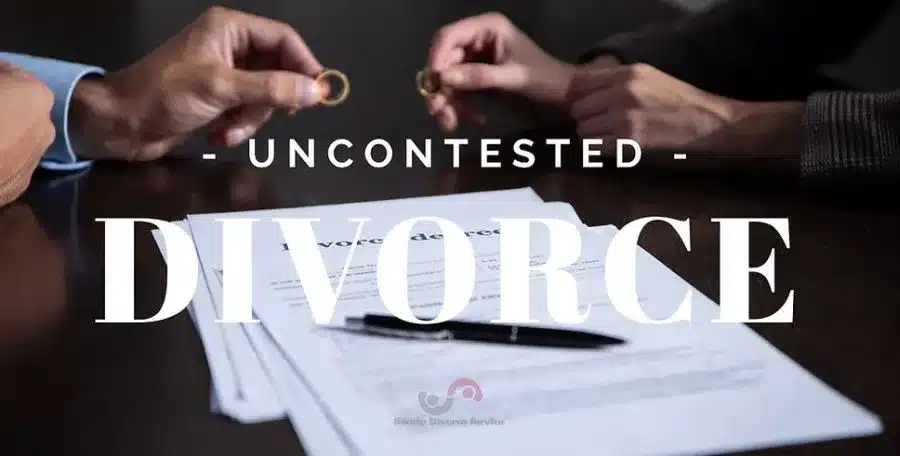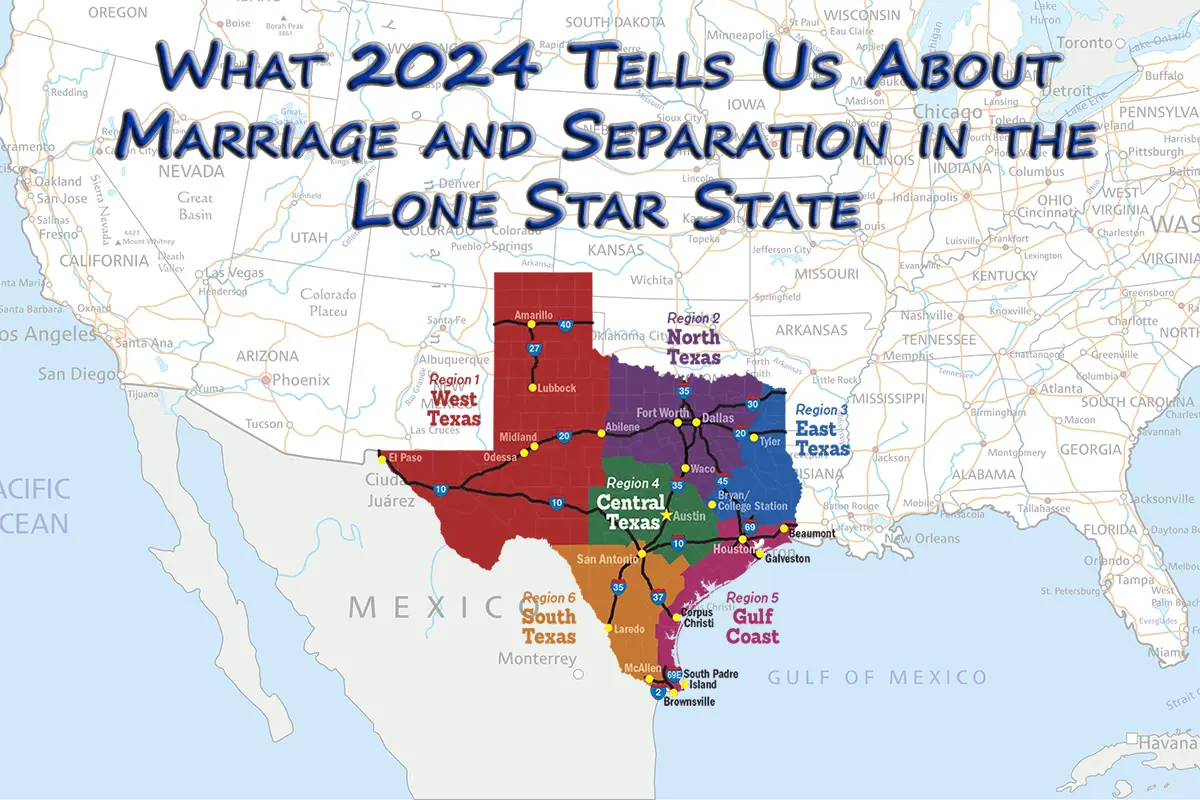⚖️ Uncontested vs Contested Divorce in Texas
The divorce process in Texas is a legal undertaking that can be both complex and emotionally demanding. Divorces generally fall into one of two categories: contested or uncontested. Understanding the differences between these types is essential, as each follows a distinct legal path with its own procedures and implications.
Contested and uncontested divorces primarily differ. The difference lies in whether the spouses can reach an agreement on significant issues. Matters such as child custody, the division of retirement accounts, and property distribution can be especially challenging to manage. In the absence of a mutual agreement, the divorce is considered contested. Resolutions may need to be sought through legal avenues such as mediation or court proceedings.

Reaching an Agreement or Preparing for Court
In Texas, a person can get a divorce through several legal avenues, depending on the circumstances of the marriage, agreement between spouses, and other factors like property and children. Here are the primary ways a person can get a divorce in Texas:
If you and your spouse are in full agreement, this is the fastest, most affordable, and least stressful option. No court appearance is usually required when using a service like ours. We handle the paperwork and guide you through the entire process.
If you and your spouse cannot agree on key issues (like custody or dividing property), your case becomes contested. This means more paperwork, possible mediation, and potentially a court hearing before a judge.
At Ready Divorce Service, we only assist with uncontested divorces. However, we’re happy to refer you to a trusted attorney if your situation changes.
📌 Additional Considerations
It’s important to note that even in uncontested divorces, the interests of both parties should be fairly represented. Successful uncontested divorces often involve clear communication, transparency, and a willingness to navigate the necessary legal procedures without contention. Couples who maintain these standards can benefit from a less acrimonious, more cost-effective, and expedient process. This allows them to focus on moving forward with their lives post-divorce.
🛠️ Grounds for Divorce in Texas

When contemplating divorce in the state of Texas, it’s essential for individuals to understand both the emotional and legal aspects of the process. Choosing the appropriate type of divorce begins with identifying the root causes of it. One must know the differences between Fault and No-Fault divorce.
Texas law provides for a relatively broad understanding of marriage dissolution, recognizing that every marriage is unique. Thus, each divorce will have its considerations and justifications. Texas is considered a “mixed state,” which means that a divorce can be granted either with or without proof that a spouse is at fault.
No-Fault Divorce Grounds
In a No-Fault divorce, state law indicates one prominent ground: the insupportability of the marriage. In fact, some states no longer even recognize them. Texas, however, retains the distinction between Fault and No-Fault divorces. This means the relationship is no longer viable due to discord or conflict of personalities. Thus, it destroys the legitimate ends of the marital relationship with no expectation of reconciliation.
Fault Divorce Grounds
For spouses seeking a Fault divorce, Texas recognizes six grounds. These are critical to understand, especially when the division of assets or custody of children is heavily contested.
- Cruelty – This is when one spouse treats the other in a way that renders further living together insupportable.
- Adultery – Engagement in voluntary sexual intercourse by a married person with someone other than their spouse.
- Conviction of Felony – If during the marriage, a spouse has been convicted of a felony, has been imprisoned for at least one year in a federal or state penitentiary, and has not been pardoned, this can be grounds for divorce.
- Abandonment – When a spouse purposely leaves the other with the intention of abandonment and remains away for at least one year.
- Living Apart – This is applicable when spouses have lived without cohabitation for at least three years.
- Confinement in Mental Hospital – If a spouse has been confined in a mental hospital for at least three years at the time the divorce is filed, and it appears that the mental disorder is a type with either a poor or no prospect of recovery. Moreover, if the mental disorder is of a type that could relapse, a divorce may be justified.
Understanding these distinctions is not only important legally but often beneficial for the emotional processes involved.
Common Questions We Hear from Texas Clients
The traditional divorce process in Texas can range anywhere from 7 to 19 months.
But according to the Texas Family Code Section 6.702, “a court may not grant a divorce before the 60th day after the divorce was filed.”
This means that a 60 day waiting period begins the day the person files for divorce. So, in the best case scenario, you will be approved of your divorce on the 61st day since you file the petition.
If you are unable to locate your spouse to provide them with the required paperwork, you may have to request the court for an official publication. Approval usually depends on how hard you have searched for them. You should submit proof of your search to the court If the judge grants your request, publish notice of your petition for divorce in the newspaper.
If the respondent still fails to file a response, the petitioner can request the court to grant divorce by default. However, you can only make this request if it has been at least 30 days since the publication. The court must then approve and sign a statement of the evidence presented at the default hearing.
If your spouse finally responds to the divorce, you will have to go to trial to resolve the contested issues, which might take up to a year or more.
Default divorce can be defined as a separate subset of an uncontested divorce. Default divorce occurs when the Respondent is notified of the divorce action but fails to or refuses to respond within 20 days. Thus, a person who does not show up loses by default.
It is important to note that if the spouse is missing and cannot be located, a default divorce also requires that a Notice of Service be made through publication (Citation by Publication) in a newspaper.
Starting the Process
- Complete the Online Questionnaire also review Which Uncontested Divorce Plan is Right for You.
Once completed, the questionnaire will be sent to one of our partners for review. One of our team members will contact you to go over the details you supplied. Once you give us the go-ahead, we will need your payment information to start your case.
Our goal at Ready Divorce Service is to provide clarity and support tailored to your individual needs. By choosing us, you’re gaining a partner who will be with you every step of the way as you embark on a new chapter of your life.
🖋️Note: See our Top 10 FAQ’s in Texas






